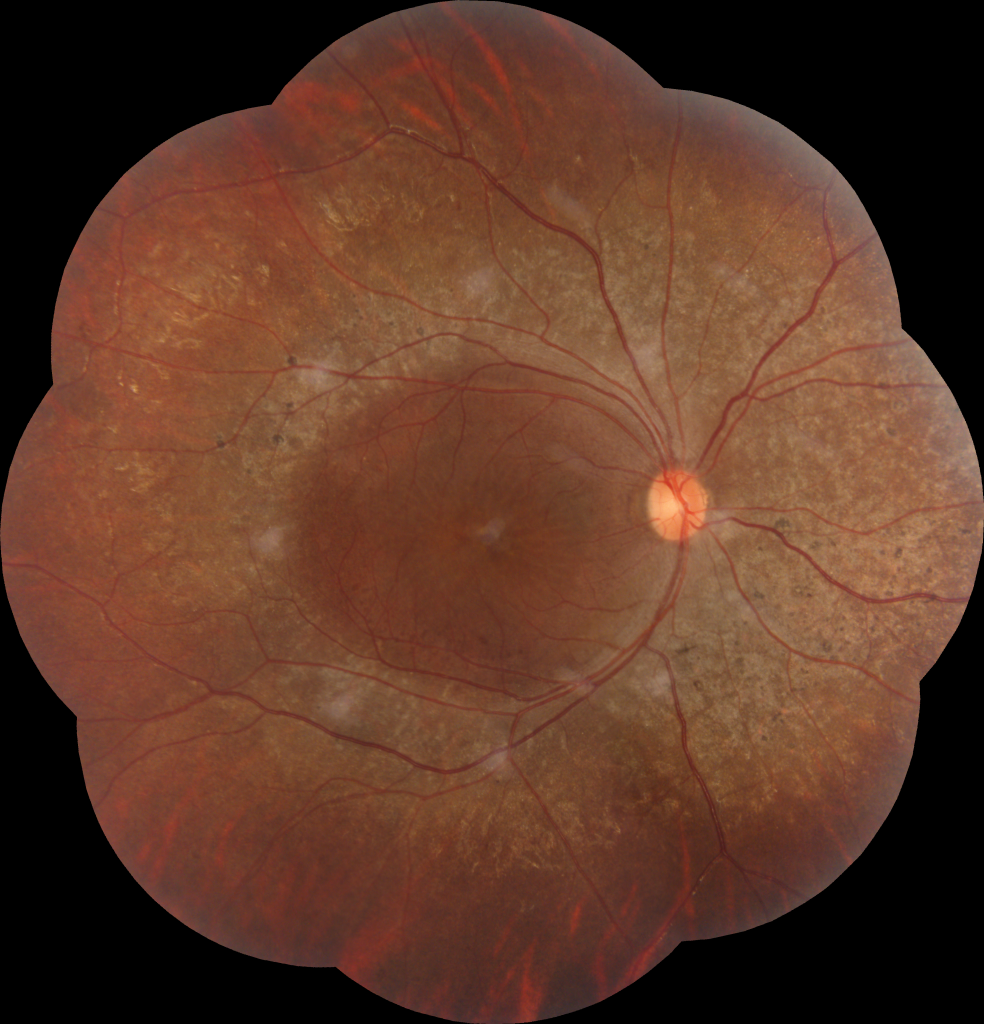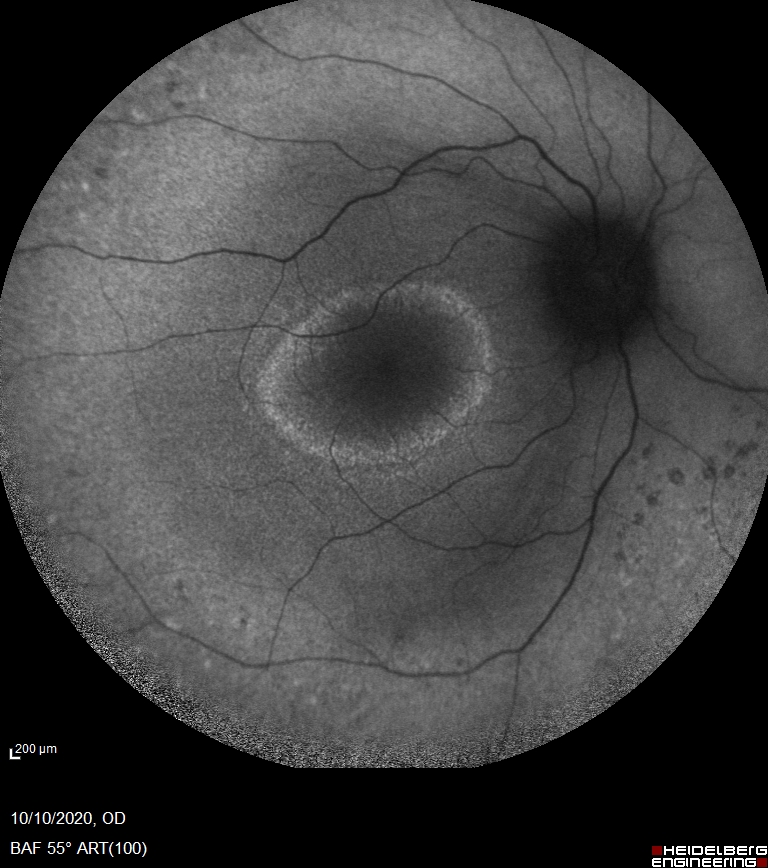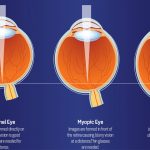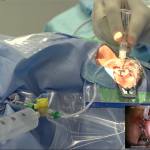Retinitis Pigmentosa (RP)
What is Retinitis Pigmentosa?
Retinitis Pigmentosa (RP) is an inherited retinal disease, characterized by progressive night blindness. In RP, photoreceptor cells in the retina, that detect light, are damaged. Retina has two types of photoreceptors; rods and cones. Rod photoreceptors are the primary cells that are affected in retinitis pigmentosa. However, eventually, cone photoreceptors are also involved. Hence the condition is also called rod-cone dystrophy.
What are the symptoms of RP?
Difficulty in seeing at night
Loss of peripheral vision (tunnel vision)
Eventual loss of central vision and color vision

Right eye image of a patient with a moderate level of retinitis pigmentosa. Note diffuse pigmentation distributed throughout the retina.
How can RP be tested?
Clinical examination
Fundus photos (Fundus Montage)
Field of vision (FOV)
Auto-fluorescence (AF)
OCT test
ERG test
Genetic testing (see below)

Complications of RP
Cataracts
Cystoid Macular Edema
What is the treatment for RP?
Unfortunately, there is no cure for RP. However, your ophthalmologist may treat complications arising from RP. This may help improve your vision to some extent. Diet high in vitamin-A and omega-3 fatty acid may help slow the progression of the disease.
At the moment, there is no treatment for most forms of RP.
Diseases associated with RP
Usher Syndrome
Leber’s Congenital Amaurosis (LCA)
Bardet-Biedl Syndrome
Abeta-lipoproteinemia
Genetic Testing for RP
Because RP is a genetic disease, it is sensible to identify exact genetic defect by gene testing. This could help identify diseases associated with RP (syndromic RP). Additionally, to explore any form of gene therapy, one must know the exact genetic defect.
Gene therapy is currently being offered to RP patients with RPE-65 gene defects
Other causes of Night Blindness
In addition to RP, other conditions that may cause night blindness include:
Vitamin-A deficiency
Congenital stationary night blindness (CSNB)
Advanced glaucoma
High myopia
Support Organizations:
https://www.facebook.com/groups/retinitispigmentosasupport/
https://www.fightingblindness.org/diseases/retinitis-pigmentosa



